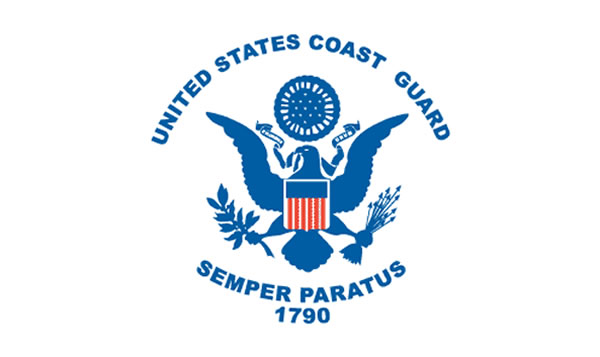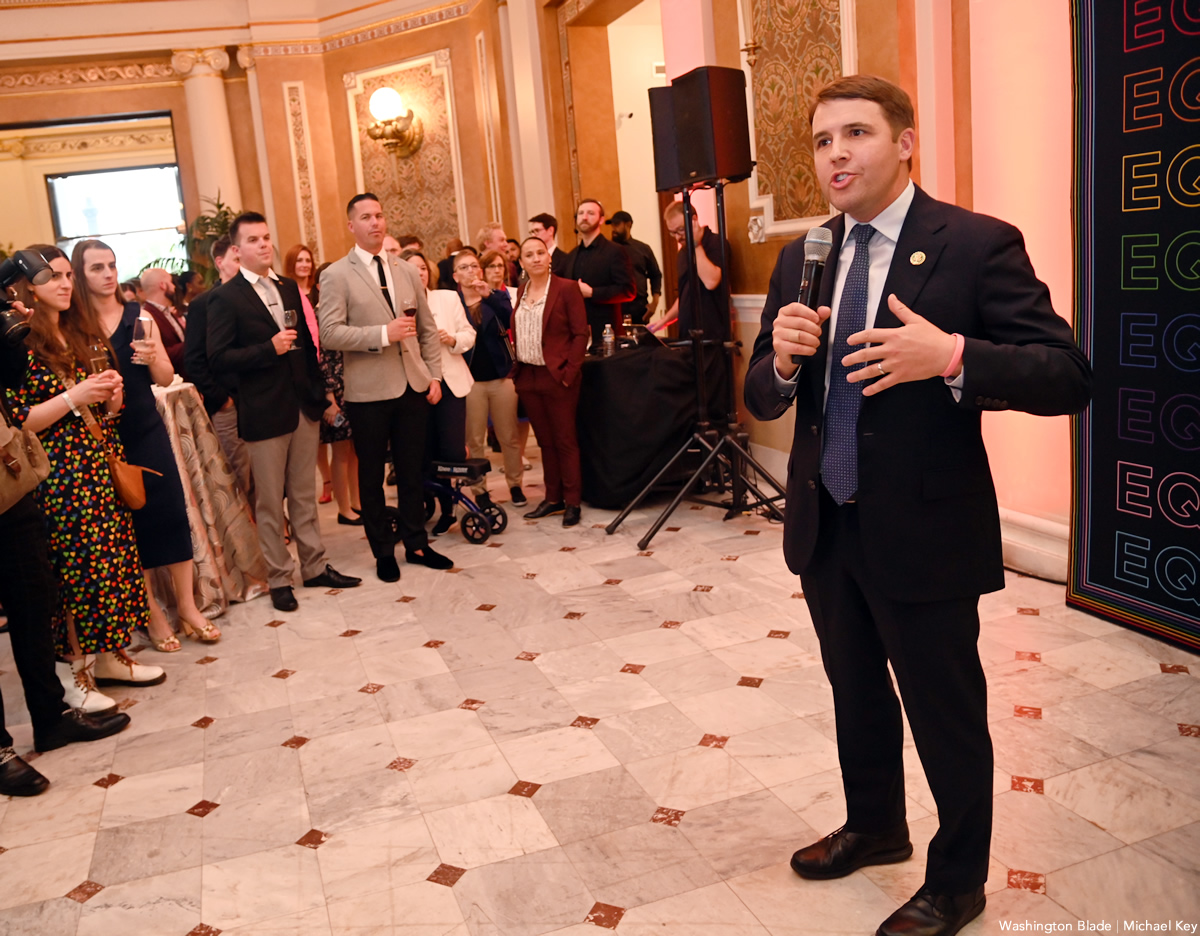News
Coast Guard enacts pro-gay non-discrimination policy
Move prompts new calls for Pentagon to enact protections for gay service members


The Coast Guard has added sexual orientation to its non-discrimination policy (Image public domain).
The U.S. Coast Guard with little fanfare has added protections based on sexual orientation to its equal opportunity policy, prompting new calls for the Pentagon to do the same with other branches of the military.
The guidance, made public Thursday morning by the American Military Partners Association and dated Oct. 13, says “sexual orientation and genetic information” are now included as part of equal opportunity and anti-discrimination/anti-harassment policy statements within the Coast Guard. The guidance is signed at the bottom by Coast Guard Commandant Adm. Bob Papp.
“We must continue to uphold our core values of Honor, Respect and Devotion to Duty which underlie our excellence in mission execution, good order and discipline, and morale,” Papp writes. “Maintaining workplaces that are free from harassment and discrimination is essential to our readiness and to ensure we remain, Semper Paratus, Always Ready.”
Stephen Peters, president of the American Military Partners Association, commended Papp for taking action to protect gay members of the coast guard and said the Pentagon should make similar policy for other branches of the armed forces.
“We urge the Secretary of Defense to do the same in order to ensure all uniformed service members are protected from unjust discrimination, not just those in the Coast Guard,” Peters said. “While Department of Defense civilian employees are protected, the DoD has yet to add orientation to its non-discrimination policy for uniformed troops. This lack of inclusion has a direct impact on not only the service member’s ability to serve openly and honestly without fear of harassment, but their spouse and family as well.”
LGBT advocates have been pushing for the enactment of an explicit non-discrimination protections for gay members of the armed forces even before “Don’t Ask, Don’t Tell” repeal. Currently, service members have no recourse for anti-gay discrimination outside of their chain of command.
In response to calls for an explicit non-discrimination policy, the Pentagon has consistently said it treats all service members with respect without committing to a new policy.
Lt. Cmdr. Nathan Christensen, a Pentagon spokesperson, responded to the renewed calls by pointing to Pentagon guidance during the process of lifting “Don’t Ask, Don’t Tell” stating sexual orientation won’t “be considered along with race, color, religion, sex, and national origin as a class under the Military Equal Opportunity (MEO) program.”
Christensen added that the reason for the difference between the Coast Guard and the Pentagon is the Coast Guard isn’t structured in the same way as other military services. The Coast Guard, he said, doesn’t have an Inspector General system like the Army, Air Force, Navy and Marine Corps.
“Simply put: DoD directs discrimination cases on the basis of sexual orientation to be handled by the DoD IG system,” Christensen said. “As such, DoD does not include sexual orientation as part of our Military Equal Opportunity (MEO) program.”
Unlike other branches of the military, the Coast Guard operates under the Department of Homeland Security and is subject to different policy. Nonetheless, the Coast Guard often implements policy similar to the Pentagon’s.
For example, after former Defense Secretary Leon Panetta announced at the start of this year the Pentagon would extend partner benefits for service members in same-sex relationships, Secretary of Homeland Security Janet Napolitano followed immediately with a statement saying the Coast Guard would do the same.
One advocate for enacting an explicit non-discrimination policy for troops based on sexual orientation is Acting Air Force Secretary Eric Fanning, who espoused the idea during an interview with the Washington Blade in May.
“Speaking personally, I always think it’s important to have non-discrimination policies codified to include everyone,” Fanning said. “The military, because it has a chain of command, has a different attitude about this and a different way to try to go about protecting airmen, sailors, soldiers, Marines — but Eric Fanning? Yes. I personally like to see these things in writing and codified.”
Additionally, the Coast Guard guidance says nothing about adding gender identity to equal opportunity and anti-discrimination/anti-harassment policy statements as transgender advocates are pushing for openly transgender service in the armed forces.
Brynn Tannehill, director of advocacy for the LGBT military group SPART*A, commended the Coast Guard for adding the protections, but said the service is unable to change transgender policy because it’s “modeled after that of the DoD’s.”
“We believe that it is time to revisit these outdated policies,” Tannehill said. “The SPART*A Transgender Chapter has members who are part of the Coast Guard. The existing medical policies on transgender Coast Guard service are every bit as harmful to them as DADT was to lesbian, gay, and bisexual service members, and have nothing to do with their actual ability and desire to serve.”
U.S. Federal Courts
Federal judge blocks Trump passport executive order
State Department can no longer issue travel documents with ‘X’ gender markers

A federal judge on Friday ruled in favor of a group of transgender and nonbinary people who have filed a lawsuit against President Donald Trump’s executive order that bans the State Department from issuing passports with “X” gender markers.
The Associated Press notes U.S. District Judge Julia Kobick in Boston issued a preliminary injunction against the directive. The American Civil Liberties Union, which represents the plaintiffs, in a press release notes Kobick concluded Trump’s executive order “is likely unconstitutional and in violation of the law.”
“The preliminary injunction requires the State Department to allow six transgender and nonbinary people to obtain passports with sex designations consistent with their gender identity while the lawsuit proceeds,” notes the ACLU. “Though today’s court order applies only to six of the plaintiffs in the case, the plaintiffs plan to quickly file a motion asking the court to certify a class of people affected by the State Department policy and to extend the preliminary injunction to that entire class.”
Former Secretary of State Antony Blinken in June 2021 announced the State Department would begin to issue gender-neutral passports and documents for American citizens who were born overseas.
Dana Zzyym, an intersex U.S. Navy veteran who identifies as nonbinary, in 2015 filed a federal lawsuit against the State Department after it denied their application for a passport with an “X” gender marker. Zzyym in October 2021 received the first gender-neutral American passport.
The State Department policy took effect on April 11, 2022. Trump signed his executive order shortly after he took office in January.
Germany, Denmark, Finland, and the Netherlands are among the countries that have issued travel advisories for trans and nonbinary people who plan to visit the U.S.
“This ruling affirms the inherent dignity of our clients, acknowledging the immediate and profound negative impact that the Trump administration’s passport policy would have on their ability to travel for work, school, and family,” said ACLU of Massachusetts Legal Director Jessie Rossman after Kobick issued her ruling.
“By forcing people to carry documents that directly contradict their identities, the Trump administration is attacking the very foundations of our right to privacy and the freedom to be ourselves,” added Rossman. “We will continue to fight to rescind this unlawful policy for everyone so that no one is placed in this untenable and unsafe position.”
District of Columbia
Gay Men’s Chorus of Washington to celebrate Spring Affair honorees
‘Their work inspires our music and deepens our mission’

For 44 years, the Gay Men’s Chorus of Washington (GMCW) has served as a powerful voice for love, unity, and pride among Washington’s LGBTQ community and its allies. Since its first performance in 1981—at the opening of the National Gay Task Force’s Washington office (later becoming the National LGBTQ Task Force)—GMCW has built a politically engaged and culturally significant legacy as one of the nation’s foremost LGBTQ performing arts organizations.
As its music and mission evolved, GMCW deepened its involvement in supporting LGBTQ individuals and allies alike. In 2004, the chorus launched its first Spring Affair fundraiser. This annual event not only generates financial support for the inclusive choral group, but also honors individuals and organizations in the Washington community who exemplify GMCW’s mission of unity, equity, and empowerment through music.
Each year at the Spring Affair gala, the chorus honors one community leader, one external organization, and one GMCW member. For the 2025 gala, GMCW will recognize Bishop Mariann Edgar Budde, Atlas Performing Arts Center, and GMCW member Keygan Miller.
“These honorees remind us why we sing,” said Thea Kano, artistic director of the Gay Men’s Chorus of Washington, DC, in an email. “In moments when our community has needed strength, they’ve offered hope. Whether it’s a brave voice from the pulpit, a tireless advocate for our youth, or an organization that opens its doors to every story—each has chosen to lead with love, truth, and courage. Their work inspires our music and deepens our mission.”
GMCW will honor Bishop Mariann Edgar Budde, the first woman elected to lead the Episcopal Diocese of Washington, as its 2025 individual award recipient. A longtime champion of equity and inclusion, Bishop Budde gained national prominence during the Inaugural Prayer Service at Washington National Cathedral, where she spoke directly to newly sworn-in President Donald Trump.
“Have mercy, Mr. President,” she implored, lifting the hopes of the most vulnerable Americans targeted by Trump’s policies—particularly LGBTQ and immigrant communities. Her bold words signaled to the nation that she remains a genuine and outspoken voice for justice, unity, and truth, inspiring compassion and faith within and beyond her religious community.
GMCW will present the Harmony Award for an Organization to the Atlas Performing Arts Center, located in the historic H Street, N.E. corridor. In 2024 alone, Atlas hosted more than 400 events and provided $1.6 million in free and discounted tickets, arts education, community programming, and space use. Through this work, Atlas has amplified “artistic voices that reflect the full diversity of our community.”
The center has long partnered with GMCW, offering space for open mic nights, cabarets, GenOUT Chorus events like the Youth Summit, and even memorial services such as that for Bobby T. Boaz. Atlas exemplifies GMCW’s mission of storytelling, equity, and civic connection through programs like the INTERSECTIONS Festival and City at Peace.
“We are absolutely thrilled and deeply honored that the Atlas Performing Arts Center has been named a recipient of the GMCW Harmony Award! This recognition is a powerful affirmation of our commitment to uplifting voices, fostering inclusive creative expression, and building a space where everyone feels seen, heard, and celebrated,” said Jarrod Bennett, Executive Director of the Atlas Performing Arts Center.
“At the Atlas, our mission is rooted in the belief that the arts are for everyone—and that through performance, dialogue, and community, we can help shape a more just, compassionate world. To be acknowledged by the Gay Men’s Chorus of Washington, DC—an organization that has long stood at the forefront of championing equality and advancing the well-being of the LGBTQ+ community—is a profound and humbling honor. We continue to be inspired by GMCW’s work and are proud to stand alongside them in this shared vision. Thank you, GMCW, for this beautiful recognition. We carry it forward with gratitude and renewed energy for the work ahead.”
Finally, GMCW will honor Keygan Miller, a chorus member since 2017, for their leadership, advocacy, and commitment to equity both onstage and off. Within GMCW, Miller served as Vice President of Diversity and Inclusion, led conversations to expand trans inclusion, authored the “Day One” pledge, and played a critical role in shaping inclusive programming.
Outside the chorus, Miller serves as Director of Public Training for The Trevor Project, a national nonprofit focused on crisis intervention and suicide prevention services for LGBTQ youth under 25. They previously worked as an Advocacy Manager at the Trevor Project, where they championed policies protecting LGBTQ+ youth at every level of government.
As GMCW continues its mission to uplift and unite through music, the organization encourages new voices to join its ranks. GMCW welcomes all singers—regardless of gender identity or sexual orientation—who can sing in the lower vocal registers.
The 2025 Spring Affair Gala will take place on May 17, 2025, at The Ritz-Carlton, Washington, D.C. This annual benefit supports GMCW’s artistic and educational programming. For tickets, audition information, and more, visit GMCW.org.
Congress
Goodlander endorses Pappas’s Senate bid
Announcement puts gay congressman on the path to securing his party’s nomination

U.S. Rep. Maggie Goodlander (D-N.H.) on Thursday announced she will not run to represent her state in the U.S. Senate, endorsing gay U.S. Rep. Chris Pappas’s (D-N.H.) bid for the seat of retiring U.S. Sen. Jeanne Shaheen, putting him on the path to secure the Democratic nomination.
“We are in the fight of our lifetimes right now, of a moment of real crisis and challenge,” she said. “I feel humbled and grateful to so many people across our state who have encouraged me to take a look at the U.S. Senate, and after a lot of thought and conversations with people I love and people I respect and people who I had never met before, who I work for in this role right now, I’ve decided that I’m running for re election in the House of Representatives.”
When asked by a reporter from the ABC affiliate station in New Hampshire whether she would endorse Pappas, Goodlander said, “Yes. Chris Pappas has been amazing partner to me in this work and for many years. And I really admire him. I have a lot of confidence in him.”
She continued, “He and I come to this work, I think with a similar set of values, we also have really similar family stories. Our families both came to New Hampshire over 100 years ago from the very same part of northern Greece. And the values that he brings to this work are ones that that I really, really admire. So I’m proud to support him, and I’m really excited to be working with him right now because we’ve got a lot of work to do.”
Today in Salem @MaggieG603 tells @WMUR9 she is not running for U.S. Senate & endorses @ChrisPappasNH #NHPolitics #NHSen #NH02 #WMUR pic.twitter.com/W2CMrhRuIC
— Adam Sexton (@AdamSextonWMUR) April 17, 2025
“Maggie Goodlander has dedicated her career to service, and we can always count on her to stand up to powerful interests and put people first,” Pappas said in a post on X. “I’m so grateful to call her my friend and teammate, and I’m proud to support her re-election and stand with her in the fights ahead.”
Earlier this month, former New Hampshire Gov. Chris Sununu, a Republican, announced he would not enter the Senate race, strengthening the odds that Democrats will retain control of Shaheen’s seat.
-

 El Salvador5 days ago
El Salvador5 days agoGay Venezuelan makeup artist remains in El Salvador mega prison
-

 State Department4 days ago
State Department4 days agoHIV/AIDS activists protest at State Department, demand full PEPFAR funding restoration
-

 Brazil4 days ago
Brazil4 days agoUS lists transgender Brazilian congresswoman’s gender as ‘male’ on visa
-

 District of Columbia5 days ago
District of Columbia5 days agoTwo charged with assaulting, robbing gay man at D.C. CVS store











